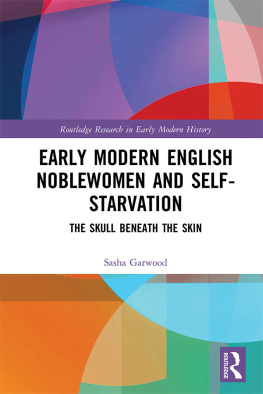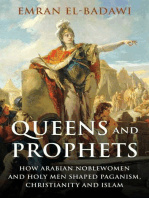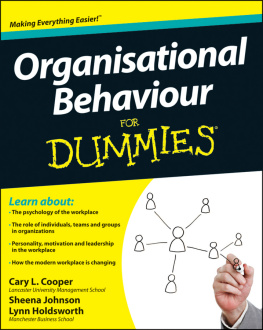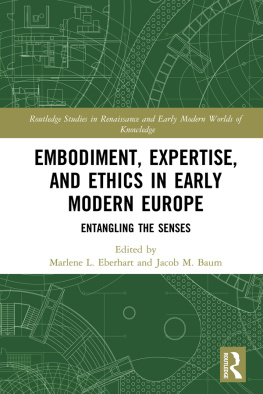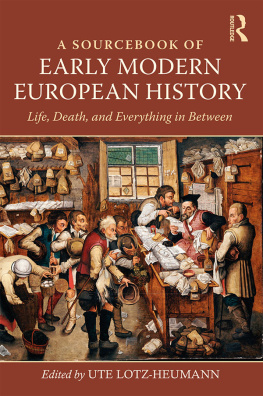Early Modern English Noblewomen and Self-Starvation
Early Modern English Noblewomen and Self-Starvation: The Skull Beneath the Skin is a unique exploration of why early modern noblewomen starved themselves, how they understood their behaviour, and how it was interpreted and received by their contemporaries.
The first study of its kind, the book adopts an interdisciplinary and highly detailed approach to examining womens self-starvation between 1500 and 1640. It is also the first book to focus on this behaviour among noblewomen. Beginning with a contextual outline of gender, food and embodiment in early modern culture, the book then looks explicitly at the food behaviour of several well-known figures, including Elizabeth I, Catherine of Aragon, Mary I, Arbella Stuart, and Katherine Grey. Each case study engages with a variety of primary sources, such as letters and legal documents, as well as with literary texts, providing an in-depth exploration of the relationship between self-starvation and concepts of autonomy, sexuality, and literal and symbolic imprisonment, highlighting the body and specifically the act of eating as fundamental to identity in the early modern period and today.
Employing both literary and historical methodologies, Early Modern English Noblewomen and Self-Starvation is an important contribution to the study of the history of the body and is essential reading for students and academics of early modern womens history, gender history, food history, and the history of the body.
Sasha Garwood is an interdisciplinary scholar focusing on gender, sex and food as a nexus of cultural anxieties from the early modern period to the present. She studied at UCL and Keble College Oxford, is currently a Fellow of the Humanities Research Institute at the University of Sheffield, and teaches History at Sheffield and English Literature at the University of Nottingham.
Routledge Research in Early Modern History
Criminal Justice During the Long Eighteenth Century
Theatre, Representation and Emotion
Edited by David Lemmings and Allyson N. May
The English Woollen Industry, c.1200c.1560
John Oldland
Incombustible Lutheran Books in Early Modern Germany
Avner Shamir
The Peace of Augsburg and the Meckhart Confession
Moderate Religion in an Age of Militancy
Adam Glen Hough
Social and Cultural Relations in the Grand Duchy of Lithuania
Microhistories
Edited by Richard Butterwick and Wioletta Pawlikowska
Spain, Rumor, and Anti-Catholicism in Mid-Jacobean England
The Palatine Match, Cleves, and the Armada Scares of 1612-1613 and 1614
Calvin F. Senning
Firsting in the Early-Modern Atlantic World
Edited by Lauren Beck
Early Modern English Noblewomen and Self-Starvation
The Skull Beneath the Skin
Sasha Garwood
Maurits of Nassau and the Survival of the Dutch Revolt
Comparative Insurgences
Nick Ridley
The Economic Causes of the English Civil War
Freedom of Trade and the English Revolution
George Yerby
Edwin Sandys and the Reform of English Religion
Sarah L. Bastow
For more information about this series, please visit: https://www.routledge.com/Routledge-Research-in-Early-Modern-History/book-series/RREMH
First published 2020
by Routledge
2 Park Square, Milton Park, Abingdon, Oxon OX14 4RN
and by Routledge
52 Vanderbilt Avenue, New York, NY 10017
Routledge is an imprint of the Taylor & Francis Group, an informa business
2020 Sasha Garwood
The right of Sasha Garwood to be identified as author of this work has been asserted by her in accordance with sections 77 and 78 of the Copyright, Designs and Patents Act 1988.
All rights reserved. No part of this book may be reprinted or reproduced or utilised in any form or by any electronic, mechanical, or other means, now known or hereafter invented, including photocopying and recording, or in any information storage or retrieval system, without permission in writing from the publishers.
Trademark notice: Product or corporate names may be trademarks or registered trademarks, and are used only for identification and explanation without intent to infringe.
British Library Cataloguing in Publication Data
A catalogue record for this book is available from the British Library
Library of Congress Cataloging-in-Publication Data
A catalog record has been requested for this book
ISBN: 978-1-138-28044-1 (hbk)
ISBN: 978-0-429-28446-5 (ebk)
To Robert Patterson, without whom I wouldnt be here and Tony Garwood Lloyd, who makes me glad I am.
Source: Heritage Image Partnership Ltd / Alamy Stock Photo.
0.1 Lucas Cranach the Elder, Eve, 1531. Found in the collection of Dresden State Art Collections.
This is my first book, and thus I have the stored-up gratitude of a lifetime to express. First of all, I am very grateful to Prof. Sabine Schlting and all at the Shakespeare Jahrbuch for their kind permission to reproduce material in Chapter 5,Women and self-starvation on the Renaissance stage: Dead Dead! Starved!, from my article The skull beneath the skin: women and self-starvation on the Renaissance stage in the 2009 Shakespeare Jahrbuch (Bochum, Verlag und Drunckkontor, 2009). Much of Chapter 7, The body of a weak and feeble woman: Elizabeth and eating, power, politics and penetration, was originally published in Zeitsprnge.Forschungen zur Frhen Neuzeit 1/2013, pp. 2245. Reprinted with kind permission of Vittorio Klostermann Verlag. Vittori Klostermann GmbH, Frankfurt am Main 2013.
I am standing on the shoulders of giants, and I am immensely grateful to all the scholars whose work on early modern women particularly my case studies and the eternally complex interactions between gender and food have offered such rich sources of inspiration and rigorous scholarly insight. I am especially indebted to Laura Gowings work on the early modern body, Sara Jayne Steens excellent edition of the letters of Arbella Stuart, and Helen Malsons genealogy of anorexia nervosa. I am also very grateful to Carole Levin, who not only wrote a splendidly useful book about Elizabeth I but also (at one of my very first conferences) demonstrated how to give an engaging conference paper. I have been studying to emulate her ever since.
Laura Pilsworth and Morwenna Scott at Routledge believed in the book from the first, and were not only endlessly patient and helpful but guided me gently and effectively through the publication process. My reviewers made this a better, stronger book, and any mistakes that remain are my own.
Everyone at UCL English Department, where I completed my PhD, and the universities of Sheffield and Nottingham, where I worked during the writing of this book, were supportive, welcoming, stimulating, and kind. Particular thanks are due to a number of people. My primary PhD supervisor, Helen Hackett, has been supportive and encouraging far beyond the call of duty for well over a decade now, and I dont think Ill ever be able to thank her enough. I owe Chris Laoutaris, now at the Shakespeare Institute, an enormous debt for his endless faith and generosity, his unstinting support, our ridiculously protracted lunches, and a wealth of academic insight. Joan Fitzpatrick at Loughborough and Laura Gowing at KCL examined my PhD with gentle yet exacting rigour, and Laura in particular continues to supply advice, patience, and encouragement. Jane Hodsons mentorship, kindness, and understanding outstripped anything I could have hoped for. Arnold Hunt fields trivial manuscript enquiries, photocopying, excessive sushi consumption, and phone calls about obscure Elizabethan aristocrats, with erudition and grace. Caroline Carr-Whitworth, of Brodsworth Hall, was a joy to work with and took me up onto the roof despite her better judgement. Jenny Tyrrell and all at Sheffield History welcomed me into the department and believed that an interdisciplinary perspective is valuable, and Im greatly indebted to everyone there for their perspectives and solidarity. Adam Rounce, of the University of Nottingham, maintained an unwavering and hopefully justified belief in my competence, and continues to be a delight to work for. Sarah Davison, Matt Green, and Leena Kore-Schroder have been unfailingly kind and generous sources of common sense, wisdom, logistical support and occasional swearing. Pete Kirwan was a sympathetic and appropriately merciless proofreader. In fact, Im profoundly grateful to all my colleagues at Nottinghams School of English for their support in large and small ways.

